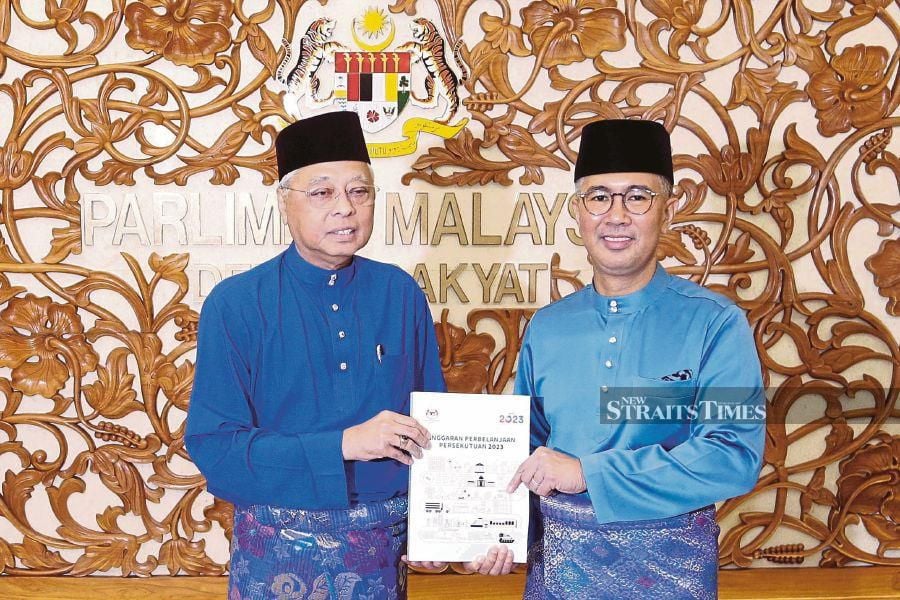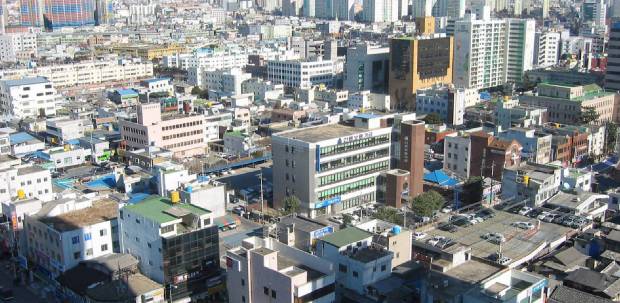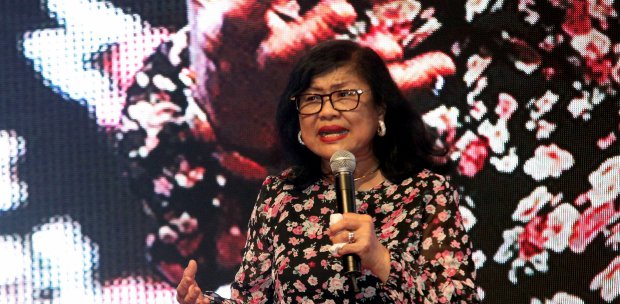THE 2023 Budget, tabled in Parliament yesterday amidst speculation of an impending general election, aims to support the country's economic recovery in anticipation of a global slowdown next year.
Its wide range of policies and incentives are designed to be responsive, responsible and reformist, besides building upon the momentum of growth this year while laying the foundations for sustainable development.
Finance Minister Tengku Datuk Seri Zafrul Tengku Abdul Aziz proposed a budget allocation of RM372.3 billion for next year, with lower operating expenditure of RM272.3 billion and higher development spending at RM95 billion.
The lower operating expenditure takes into account reduced allocation for subsidies and social assistance following the expected moderation in commodity prices and gradual implementation of a targeted subsidy mechanism.
The 2023 Budget has allocated over RM55 billion for subsidies, aid and incentives to alleviate the cost of living.
This was lower than the estimated RM77 billion in subsidies to be spent this year.
The top three recipients of the 2023 Budget were the Finance Ministry (RM67.2 billion), Education Ministry (RM55.6 billion) and Health Ministry (RM36.1 billion), constituting 43.3 per cent of the total expenditure.
With government revenue expected to be 4.4 per cent lower next year at RM272.6 billion, the record budget allocation would be financed mainly by taxes (55 per cent) and borrowings (26.8 per cent).
This year, the country's economy is forecast to grow better than expected with gross domestic product (GDP) growth at 6.5 to 7.0 per cent, but will moderate to 4.0 to 5.0 per cent next year.
"Given the more challenging operating landscape, the 2023 Budget will also prioritise reform initiatives to improve the wellbeing of the people, strengthen business resilience, promote economic prosperity and enhance public service delivery to sustain economic growth momentum," Tengku Zafrul said.
This is the second budget tabled under the government led by Prime Minister Datuk Seri Ismail Sabri Yaakob, and Tengku Zafrul's third as finance minister.
Its tabling had been brought forward from Oct 28 to Oct 7, which fuelled speculation that Parliament would soon be dissolved to pave the way for the 15th General Election (GE15).
"Themed 'Keluarga Malaysia, makmur bersama', this budget will ensure the wellbeing of the people, continuity of business, and efficiency of the civil service," Tengku Zafrul said.
Among others, he announced an allocation of RM7.8 billion for Bantuan Keluarga Malaysia (BKM), which would benefit 8.7 million recipients.
Those in the M40 group with an annual income of less than RM100,000 would receive e-wallet credit worth RM100 under the e-Pemula M40 initiative.
Micro, small and medium enterprises (MSMEs), meanwhile, will benefit from a two per cent reduction in the taxable rate on their first RM100,000 income, from 17 per cent to 15.
A total of RM10 billion in loan funds will also be provided to encourage automation and digitisation in the small and medium enterprise (SME) sector.
Tengku Zafrul also announced a two percentage point cut on taxable income ranging from RM50,000 to RM100,000 for domiciled individuals.
This would mean a tax cut from 13 per cent to 11 per cent for those in the taxable income bracket of RM50,000 to RM70,000, and a drop from 21 per cent to 19 per cent for those in the RM70,000 to RM100,000 bracket.
In a move that would collect more taxes from high-income earners, the taxable income range of RM250,000 to RM400,000 will be combined with the RM400,000 to RM600,000 range and be subjected to a 25 per cent tax rate.
Next year, the government will also increase the Early Schooling Aid (BAP) from RM100 to RM150 for all pupils, regardless of the income level of their parents.
Assistance for civil servants, meanwhile, include higher Aidilfitri aid of RM600, a RM100 salary increment for those in Grade 11 to 56, a one-off RM700 special aid for 1.3 million civil servants under Grade 56, and RM100 subsidy for insurance coverage.
Six new growth areas were identified to accelerate transformation into a high-income nation. These include advanced engineering and electronics, aerospace, biomass industry, chemicals and chemical products, pharmaceuticals and the digital economy.
The government also seeks to encourage more local food production to reduce reliance on food imports. There will also be increased focus on higher value tourism, strengthening of cultural products and facilities.
"Moving forward, the government will continue to monitor global developments and develop appropriate policies to address any external shocks, be responsive towards protecting the people's livelihoods and wellbeing, and ensure business recovery," Tengku Zafrul added.






